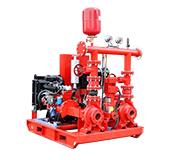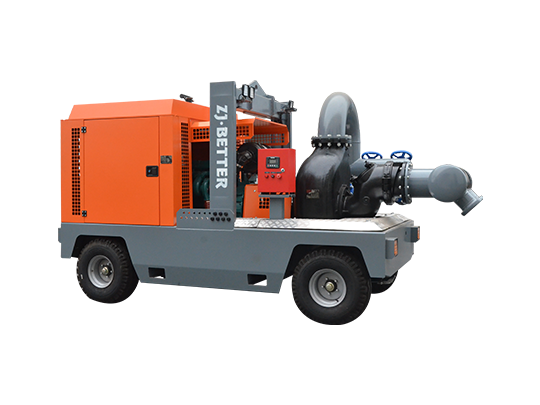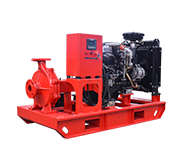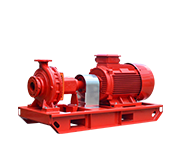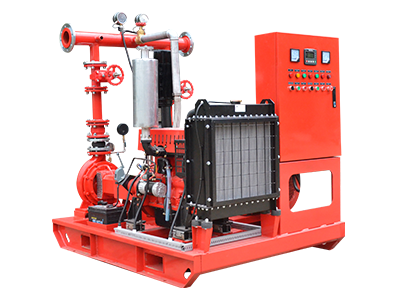- Fire Pump System
-
- UL-Listed Fire Pump SetEDJ End Suction Fire Pump SetEDJ Fire Pump SetEJ Small Flow Fire Pump SetFire Pump PackagesContainerized fire pump setDiesel Fire Pump SetED Small fire pump setElectric Jockey Fire Pump SetFire Pump Set with Jockey PumpFire Pump SystemSplit Case Fire Pump SetMutistage EDJ Fire Pump SetDiesel Fire Pump Set with Jockey PumpFire Fighting Pump SystemElectric Diesel Jockey Fire Pump SetFire Fighting Pump Set with Jockey PumpSmall Capacity Electric Fire Pump SetDJ Fire Pump Set with Jockey PumpEJ Fire Pump SetED Fire Pump Set (Electric+Diesel pump)Diesel Engine Fire Pump SetDiesel Fire Jockey PumpSmall Fire Pump SetEDJ Fire Pump SystemFire Water Pump SetFire Pump AssemblyDJ Small Flow Fire Pump SetCummins Engine Fire Pump Set
- Mobile Pump Unit
-
- Split Case Series Mobile Pump TruckSelf Priming Series Mobile Pump TruckCentrifugal diesel driven dewatering pumps open frame trailerFlow-mixing Mobile Pump TruckFlow-mixing Mobile Pump TruckManure Pump TruckP12 modle mobile Pump truckP10 Modle Mobile Pump Truck1000m³Self Priming Series Mobile Pump TruckLarge Flow Non-Clogging Mobile Fire Pump TrailerTrailer Mounted Fire PumpFire Emergency Mobile Pump TruckDiesel Engine Emergency Mobile Trailer Pump
- Diesel Fire Pump
-
- UL Listed Diesel End Suction Fire PumpXBC-S Diesel Split Case Fire PumpXBC-IS Diesel End Suction Fire PumpXBC-D Diesel Multistage Fire PumpVertical Turbine Diesel Engine Fire PumpDiesel Engine Single-Stage Centrifugal PumpXBC-IS Diesel End Suction Fire Fighting PumpXBC-S Diesel Engine Split Case Fire PumpDiesel Engine End Suction Fire PumpXBC-IS Diesel End Suction Fire PumpsZWC Diesel Engine Self Priming Pump for IrrigationDiesel Engine End Suction Fire Fighting PumpXBC-S Heat Exchange Diesel End Suction Fire PumpXBC-XA Diesel Engine End Suction Fire PumpXBC-IS Diesel Engine Fire PumpDiesel Engine End Suction Fire PumpXBC-IS Diesel Engine End Suction Fire PumpXBC-ISO Diesel Fire Fighting PumpPortable Fire PumpFire Booster Pump

Email: zjbetter@119pump.com
Tel:+86 15336708022(Gloria) +86 13306708055 (Ivy) +86 13357006058 (Serena) +86 13357022877 (Wendy) +86 17757009882(Kate)
Fax:0086-570-3010238
-
What are the different types of fire pump drivers, and how do they differ?
Fire pump drivers can be electric motors, diesel engines, or steam turbines. Electric motors are common for indoor installations where electricity is readily available and emissions need to be controlled. Diesel engines are preferred for outdoor installations or locations with unreliable power sources, providing a reliable backup during power outages. Steam turbines, although less common, are highly efficient and may be used in specialized applications.
View more +
-
What are the key components of a fire pump set?
Key components include the pump, driver (motor or engine), controllers (starters, switches, and monitoring devices), suction and discharge piping, valves (check valves, gate valves), and ancillary equipment (such as pressure gauges and flow meters).
View more +
-
Where are fire pump sets used?
Fire pump sets are used in various applications, including commercial buildings, industrial facilities, high-rise buildings, airports, hospitals, and residential complexes, where fire protection systems are required by building codes or insurance regulations.
View more +
-
Can jockey pumps be retrofitted into existing fire protection systems?
Yes, jockey pumps can often be retrofitted into existing fire protection systems to improve performance, reliability, or compliance with updated regulations or standards. However, retrofitting may require modifications to the existing system, such as changes to piping, electrical connections, or control systems, and should be carried out by qualified professionals in accordance with applicable codes and standards.
View more +
-
How do environmental factors impact the performance of jockey pumps?
Environmental factors such as temperature, humidity, altitude, and the presence of corrosive or abrasive materials can impact the performance and lifespan of jockey pumps. It's important to select a pump that is suitable for the specific environmental conditions in which it will operate and to take measures to protect the pump from adverse conditions, such as installing protective enclosures or using corrosion-resistant materials.
View more +
-
How does a jockey pump interact with other components of a fire protection system?
In a fire protection system, the jockey pump works in conjunction with other components such as main fire pumps, water storage tanks, piping, valves, and sprinkler heads. The jockey pump helps to maintain pressure in the system during normal operation and ensures that water is delivered quickly and effectively to the sprinkler heads or other fire suppression devices when needed.
View more +
-
What are the key components of a jockey pump system?
A typical jockey pump system consists of the jockey pump itself, a pressure sensing device (such as a pressure switch or transducer), a controller or starter panel, piping, valves, and electrical connections. The pressure sensing device monitors the pressure in the system, while the controller or starter panel activates the pump as needed to maintain the desired pressure.
View more +
-
What are the different types of jockey pumps available?
There are several types of jockey pumps available, including centrifugal pumps, vertical turbine pumps, and horizontal split-case pumps. The choice of pump type depends on factors such as the size and configuration of the fire protection system, flow requirements, space constraints, and the specific needs of the application.
View more +
-
Are there any special considerations for installing a jockey pump?
When installing a jockey pump, it's important to ensure that it is located in a properly ventilated and accessible area, with adequate clearance for maintenance and service. The pump should be installed according to the manufacturer's specifications and in compliance with local building codes and regulations. Additionally, it's important to consider factors such as piping
View more +
-
Can a jockey pump be used in other applications besides fire protection?
While jockey pumps are primarily used in fire protection systems, they can also be used in other applications where maintaining constant pressure is important, such as in water supply systems, irrigation systems, and HVAC systems.
View more +
-
What factors should be considered when selecting a jockey pump for a fire protection system?
Factors to consider when selecting a jockey pump include the size and layout of the fire protection system, required flow rates and pressure levels, local building codes and regulations, and the specific needs and requirements of the facility or building being protected. Consulting with a qualified engineer or fire protection specialist can help ensure that the right pump is selected for the job.
View more +
-
How do firefighting pumps contribute to water conservation efforts?
Firefighting pumps can play a role in water conservation efforts by efficiently utilizing available water resources and minimizing water wastage during firefighting operations. For example, some pumps are equipped with features such as adjustable nozzles and pressure regulators, allowing firefighters to control the flow and direction of water more precisely. Additionally, the use of foam-based fire suppressants can help reduce water usage by creating a more effective firefighting barrier with less water volume.
View more +
-
What are some emerging trends in firefighting pump technology and innovation?
In recent years, there has been a focus on developing more advanced firefighting pump technologies to address evolving fire risks and challenges. One emerging trend is the integration of digital monitoring and control systems into firefighting pumps, allowing for real-time performance tracking, remote operation, and predictive maintenance. Additionally, advancements in materials and manufacturing techniques have led to the development of lighter, more durable pump components, improving portability and reliability in demanding firefighting environments.
View more +
-
Are there special training requirements for operating firefighting pumps?
Yes, proper training is essential for safely and effectively operating firefighting pumps. Training topics may include pump operation and maintenance, understanding pump performance curves, selecting and deploying appropriate nozzles, and practicing safe firefighting techniques.
View more +
-
Can firefighting pumps be used in conjunction with other fire suppression methods?
Yes, firefighting pumps are often used in conjunction with other fire suppression methods, such as fire extinguishers, fire sprinkler systems, and fire blankets, to provide comprehensive fire protection in various environments.
View more +
-
What are the primary components of a firefighting pump system?
A typical firefighting pump system consists of the pump itself, intake and discharge hoses, nozzles, strainers or filters to prevent debris from entering the pump, and sometimes additional accessories like foam injection systems for enhanced fire suppression capabilities.
View more +
-
What are the different power sources for firefighting pumps?
Firefighting pumps can be powered by various sources, including gasoline engines, diesel engines, electric motors, and even manual operation in some cases. The choice of power source depends on factors such as portability, availability of fuel, and the intended application.
View more +
-
How long can a firefighting pump operate continuously?
The continuous operation time of a firefighting pump depends on factors such as the pump's capacity, the availability of a water source, and the ambient temperature. Some pumps are designed for continuous operation, while others may need to be periodically shut down for cooling and maintenance.
View more +
-
Can a firefighting pump be used for other purposes besides firefighting?
While firefighting pumps are specifically designed for extinguishing fires, they can also be used for other applications such as irrigation, flood control, and construction dewatering, depending on their design and capabilities.
View more +
-
What are the implications of evolving building codes and regulatory requirements for fire pump system design and implementation?
Evolving building codes and regulatory requirements have significant implications for fire pump system design and implementation, as they establish minimum standards and guidelines for fire protection in buildings and structures. Changes in building codes, such as updates to fire protection requirements, occupancy classifications, or sprinkler system standards, may necessitate modifications to existing fire pump systems or require the installation of new systems in newly constructed buildings. Additionally, regulatory agencies may introduce new mandates or incentives to encourage the adoption of advanced fire pump technologies or sustainable practices that enhance fire safety and resilience. Staying informed about changes in building codes and regulatory requirements is essential for ensur
View more +
-
What are the implications of evolving building codes and regulatory requirements for fire pump system design and implementation?
Evolving building codes and regulatory requirements have significant implications for fire pump system design and implementation, as they establish minimum standards and guidelines for fire protection in buildings and structures. Changes in building codes, such as updates to fire protection requirements, occupancy classifications, or sprinkler system standards, may necessitate modifications to existing fire pump systems or require the installation of new systems in newly constructed buildings. Additionally, regulatory agencies may introduce new mandates or incentives to encourage the adoption of advanced fire pump technologies or sustainable practices that enhance fire safety and resilience. Staying informed about changes in building codes and regulatory requirements is essential for ensur
View more +
-
How do economic factors and budget considerations influence decision-making regarding fire pump systems?
Economic factors and budget considerations play a significant role in decision-making regarding fire pump systems. Building owners and facility managers must balance the upfront costs of purchasing and installing fire pump systems with the long-term benefits of enhanced fire protection and reduced property damage. Factors such as equipment costs, installation expenses, ongoing maintenance costs, and potential insurance savings are weighed against the budgetary constraints and financial resources available to stakeholders. Cost-benefit analyses and life cycle cost assessments help evaluate the economic feasibility of different fire pump system options and determine the most cost-effective solution that meets the required level of fire protection. Additionally, financing options such as leas
View more +
-
How do testing procedures for fire pump systems vary depending on regulatory requirements and industry standards?
Testing procedures for fire pump systems may vary depending on regulatory requirements established by local authorities having jurisdiction (AHJs) and industry standards such as NFPA 25. While the frequency and scope of testing may be prescribed by regulations and standards, the specific methods and protocols for conducting tests can vary. For example, some jurisdictions may require quarterly flow tests to verify pump performance, while others may mandate annual or biennial tests. Similarly, testing procedures for electric-driven and diesel-driven fire pumps may differ based on their respective operational characteristics and requirements. Compliance with regulatory testing requirements is essential to ensure system reliability and maintain compliance with applicable codes and standards.
View more +
-
What are some common maintenance challenges faced by owners and operators of fire pump systems?
Owners and operators of fire pump systems often encounter challenges in maintaining system integrity and compliance with regulatory requirements. Common challenges include managing maintenance schedules to minimize disruptions to building operations, ensuring access to qualified personnel for inspection and repair tasks, procuring replacement parts in a timely manner, and navigating budget constraints while meeting maintenance obligations. Effective maintenance strategies should address these challenges by implementing proactive measures, such as predictive maintenance techniques and strategic inventory management, to optimize system reliability and performance while minimizing downtime and costs.
View more +
-
How do advancements in technology impact the design and operation of fire pump systems?
Advancements in technology have led to the development of innovative solutions for fire pump systems, including improved pump designs, enhanced control and monitoring capabilities, and integration with building automation systems. Modern fire pumps may incorporate features such as variable speed drives for energy efficiency, remote monitoring and diagnostics for proactive maintenance, and advanced control algorithms for optimized performance. These technological advancements not only enhance the reliability and efficiency of fire pump systems but also provide greater flexibility and adaptability to changing operational needs and regulatory requirements. Integrating these technologies into fire pump system design and operation can improve overall fire protection capabilities and reduce the
View more +

